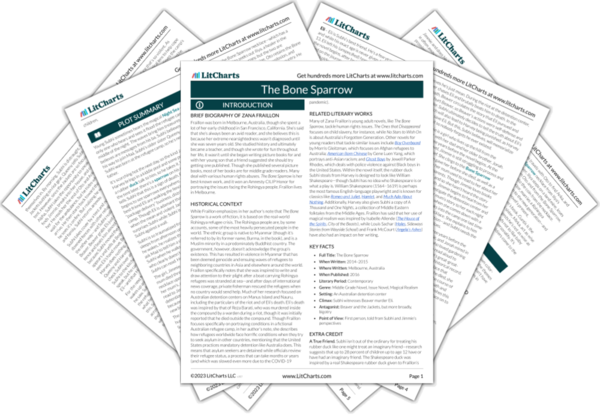AI ToolsNew
Tools to make learning and teaching easier
|
Previous
Chapter 9
|
The Bone Sparrow: Chapter 10 Summary & Analysis |
Next
Chapter 11
|


Upgrade to unlock the analysis and theme tracking for all of The Bone SparrowThe Bone Sparrow!
Get LitCharts A+